 Michael Pollack of Rocket Fuel Labs
Michael Pollack of Rocket Fuel Labs
Verbatim, Part 4 – John Jonelis
“If it doesn’t work, get a bigger hammer.” – Butch Fischer, Local #1 Boilermaker Foreman.
Entrepreneurs need a wide array of management and technology talent to build truly extraordinary companies. How do you fill those gaps while remaining lean?
What if you could draw amazing talent from a common pool as needed? What if that source was a fully functioning development studio? What would that look like? A number of pictures spring to mind:
- Lower cost for each company due to pooled resources.
- Increased success because talent is there when you need it.
This is the picture I’m getting of Rocket Fuel Labs. They are part development studio, part incubator, part product-development resource, part innovation think tank. I’m continuing a conversation with Michael Pollack, their CEO, and he’s indicated that he wants to hone in on specific concepts.
.
Discovery
John—Okay, let’s say I’m a customer that meets your criterion. What am I buying?
Mike—Sure, let’s walk through it. The first step is discovery. And discovery is, I think, hard for a lot of entrepreneurs. But at the conclusion of this process there’s a discovery doc, there’s a lean canvas.
Typically the start of this process is something that doesn’t get enough attention but is really the most important thing you can ever do—customer development.
Most startups fail. Not because they don’t build enough product. Most actually build too much product but never identify who their target customer is. The first step in discovery is, “Who are we targeting?” And once that’s been addressed then, “What are we building?” Because the WHO is the most important piece.
John—That’s why you stress prototyping and the lean canvas.
Mike— I agree with the agile, lean startup mentality, because we want to validate in the real world. I think Steve Blank got it right. I think Ash Maurya is spot on.
John—I thought that all came from Alexander Osterwalder.
Mike—Actually, I think it all came from Boyd. John Boyd—brilliant man—military_strategist—fascinating guy—I highly recommend reading up on him. There’s one book in particular called BOYD.
Iteration
Boyd was a Marine pilot. Top Gun was his idea. During the Korean conflict, he became fascinated by a practical question—why certain pilots succeeded and others didn’t. If you think about air-to-air combat skills, during WWII, they were very good, but in Korea, MiGs with Russian-trained Chinese pilots were taking out American planes. Our military was trying to figure out why it was happening. It’s interesting and has ramifications for most any competitive pursuit.
The Air Force at this time believed that the best pilots were the smartest pilots. They were recruiting these guys from Harvard and from Yale. They were saying, “We’ll get the most educated people.” And what John Boyd identified very quickly was that what made the best fighter pilots actually had nothing to do with decision quality. It had everything to do with decision quantity.
John—You’re saying that paralysis by analysis is not a good thing in real time, whether it’s in a dogfight or in business.
Mike—Exactly. If you’ve heard of an OODA loop—that’s Boyd—Observe, Orient, Decide, Act.
.
.
What he found was that the best fighter pilots weren’t the smartest or the best classically trained. The best were the ones that could make the most decisions fastest. His maxim was that decision quantity trumps decision quality.
As it pertains to a startup, what I found firsthand was this: If we designed a product that didn’t work, we pivoted. As I’ve told my teams in the past, and I ardently believe it: “Speed kills when you don’t have it.”
John—That’s a great quote. The way you state it makes me stop and think.
Mike—NOT making a decision IS a decision, and the more decisions you make, the greater the likelihood that you’re going to get to the right one because every decision, if you’re doing it right, is based on a hypothesis. You should seek to prove or disprove that very hypothesis.
What makes the lean model exciting is using data to make those pieces actionable.
When you think about the customer development process, you want to put things in place that enable those OODA loops. Are the entrepreneurs able to make a decision? Because every decision should yield more data. More data means more decisions—more decision quantity. Again, when you’re in a dogfight, quantity trumps quality.
.
The MVP
John—So you’re making a minimally viable product for your client, then you’re going out and testing it, and you’re asking the customer to react, and you’re changing the product and repeating the process…
Mike—Exactly. And so part of what we’re doing is giving a startup the infrastructure to do just that. We can deploy software in ways that you couldn’t ten or fifteen years ago. In our business, we want to bring that capacity to entrepreneurs. Then we actually teach the lean process along the way.
Increasingly people are asking us to do online marketing for them because people assume, “Hey, I’m not getting customers—I must have a marketing problem.” Just because you’re not getting customers doesn’t mean you have a marketing problem.
- It could be that you don’t have product/market fit.
- It could be that your customer development was insufficient or you didn’t ask the right questions.
- It could be that the product doesn’t work. There could be all sorts of elements there.
We talk to a lot of startups. We put them through discovery and they get jazzed by our process and we get excited by it, too.
- What is the need?
- What should we be selling?
- What is the market missing that we can deliver better?
Don’t tell the market those things. Test your hypothesis. Let the market tell you.
John—You let the customer respond to your MVP. You rebuild it to the need and keep discovering new needs and filling those needs that the customer never thought to ask at the beginning of the process. The customer doesn’t know how to do that. Most people aren’t thinking in those terms, they’re thinking marketing studies, focus groups, surveys.
Mike—Exactly. Henry Ford has a great quote in which he said: “If I asked my customers what they wanted, they would have said a faster horse.” Innovation is an iterative process. We’re trying to figure out the gaps in the market.
Our methodology is agile. Agile gets thrown around a lot and I think it’s kind of hollow at times. What agile means to us is this: We’re going to iterate with you. And we’re going to help figure out the problem. We want to spend time with the people feeling the pain because that’s what you need to know in order to build thoughtful solutions.
Make it Stick
As I ride back in the water taxi and gaze at the gleaming buildings it feels like a slice of some modern Venice. A few quotes from the interview turn over and over in my head. I’m sure Pollack doesn’t lay claim to them all, but these strike me as significant:
ON VISION—“People have a hard time separating cause and effect. You can’t fix effects, but you can treat causes.”
ON INFRASTRUCTURE—“Good infrastructure is a platform. You build on it, just like software. The highway system provided the platform on which McDonalds could provide roadside dining. Hilton and Marriot could build massive hotel chains.”
ON COLLABORATION—“If I’m the smartest person in the room I know I’m in the wrong place. As the dumbest person in the room, you work harder, you think harder, you prepare for every question, and you do your homework even deeper before going to that meeting, so you can over-deliver.”
ON DISCOVERY—“Where’s the pain in your business? Once we do the whole inventory, it’s just like taking something apart. What’s working and what’s not working?”
ON MARKETS—“I never knock the competition because I’m sure they’re doing a great job. Competition helps. It creates a market. If I see inefficiency, I want to challenge it and do better.”
ON INTEGRITY—“My firm and adamant business philosophy is that I sincerely and always want to under-promise and over-deliver.”
ON EXECUTION—“A lot of entrepreneurs have an idea, but don’t know how to execute it. Even if the idea’s great, it comes down to execution. There were fifty facebooks before there was Facebook and they were all good ideas, but Mark Zuckerburg out-executed them all.”
ON THE PIVOT—“Speed kills when you don’t have it.” Ω
.
Contacts
Rocket Fuel Labs
- Specialties – Startups
- Industry – Computer Software
- Type – Privately Held
- Company Size – 1-10 employees
- Founded 2013
- Expertise – Web Development & Deployment, UI/UX, Online Marketing, Product architecture, E-Commerce.
- Headquarters – 222 W Merchandise Mart Plaza #1212 Chicago, IL 60654 United States
- Website – RocketFuelLabs.com
- Email – Info@RocketFuelLabs.com
- Phone – 855-4FR-LABS
- Fax – 312-620-9655
Photos courtesy Wikipedia, Amazon, John Boyd, The Hammer Source, Michael Pollack
Chicago Venture Magazine is a publication of Nathaniel Press www.ChicagoVentureMagazine.com Comments and re-posts in full or in part are welcomed and encouraged if accompanied by attribution and a web link . This is not investment advice. We do not guarantee accuracy. It’s not our fault if you lose money.
.Copyright © 2013 John Jonelis – All Rights Reserved
.
.






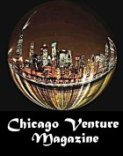



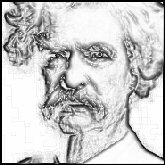




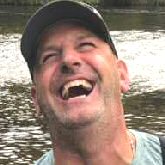


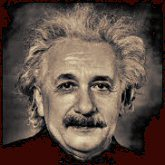



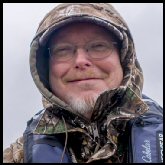






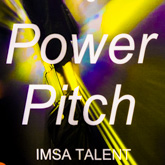












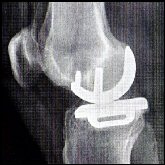



















































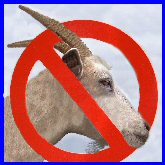
































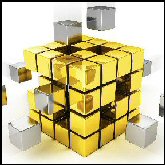












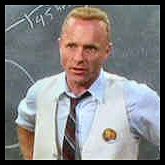







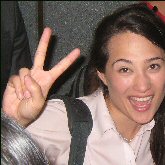























Pingback: TAKING IT APART | Chicago Venture Magazine
Pingback: anti valentines day